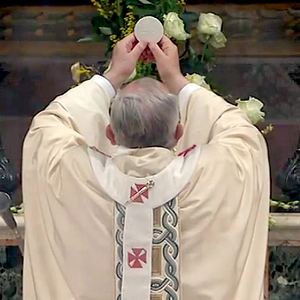I can't help thinking Jeremy Corbyn is rather like Pope Francis, trying hold things together but in reality is presiding over its fragmentation, God promises the survival of the Catholic Church but not the Labour party. Corbyn's election like the Pope's was a harking back to a time that many had thought had past, an attempt at popularism. The problem for both is the political environment they now face is not that of their youth.
Watching Ken Livingstone being confronted by John Mann seems to demonstrate how the 'Left' cannot hold. Limestone's defence too is bizarre, "Hitler was a Zionist", he says. It is half remembered and reinterpreted history, seen through a certain lens. Yes, Hitler certainly wanted Jews to have some kind of homeland, many politicians of the time did, suggestion ranged from Palestine, to a bit of Australia, to Madagascar and eventually to 'the East', and history reveals the atrocities that happened there. Hitler's 'Zionism' was borne out of a deep hatred for Jews, and a desire to enslave, and ultimately to destroy them.
I really do not think that Livingstone wants to apply any sanction to 'the Jews', the problem is one of modern intellectuals inability to understand that someone's religious identity, might actually have a social and political dimension. Livingstone's 'anti-Semiticism' is on the same level as his anti-Christianism, more specifically his anti-Catholicism, it is shared by the rest of the Guardian reading establishment. It stems from an inability to realise that a religion has a certain cultural impact that overreaches ordinary politics and claims an affiliation beyond national borders. Religion, politicians on both the left and right fail to understand, binds people together, it has a super-social dimension, it unites people to a history beyond a merely national one, it has a political vision beyond the narrowness of contemporary politics.
For post holocaust Jews the State of Israel has replaced an international Jewish fraternity that followed the diaspora caused of the Roman destruction of Jerusalem in 70 AD. Jews were a distinct group marked not only by belief but by a distinct culture: kosha food and dress, the need to live together and separated from those they lived amongst, and their internationalism and their shared history of persecution make them distinct. The problem is that politicians like Livingstone underestimate the importance of this. In the same way they are incapable of realising the distinctiveness of other groups, like Catholics, whose vision incorporates the social Kingship of Christ.
The blind spot for people like Livingstone is their failure to understand the social, cultural and political significance of Islam. For them Islam merely represents potential Labour votes. Naz Shah whose unguarded pre-election comments started this brush fire for Labour probably do not represent the views of most Muslims but they do represent of some and I would suggest not an insignificant 'some'.
There is an inability of the 'Left' to recognise how distinct the culture of the Judaism makes Jews and also fails to understand how the culture Islam makes Moslem distinct. Livingstone and his ilk believe in assimilation, they cannot recognise that religion makes people distinct. Jews look to Israel, Christians to the Kingdom of Christ and Muslims to the Ummah. The failure to bother to understand and to take seriously the significance of the theology which underlies religious groups at the moment is a catastrophe for the Labour Party and Jeremy Corbyn.
In France, in Belgium, in Germany and through out Europe I am sure that most politicians believe that assimilation will eventually change immigrants but the truth is that religion is actually a much stronger bond than passing political parties, religions endure politics and politicians pass.






